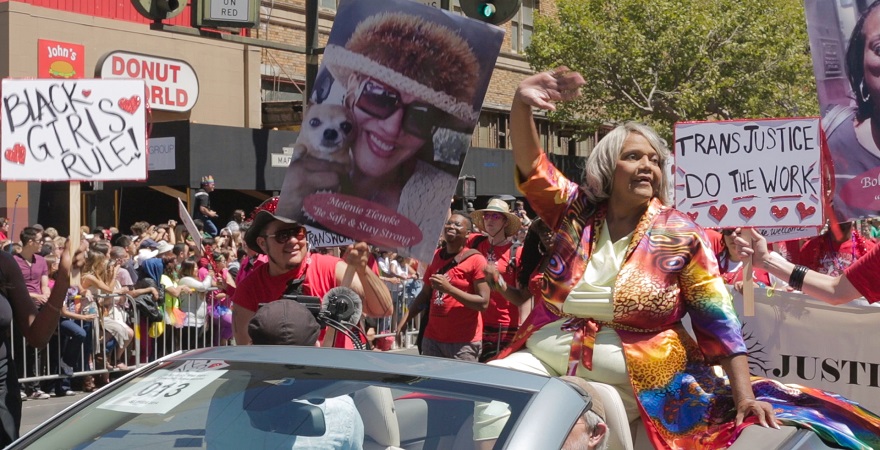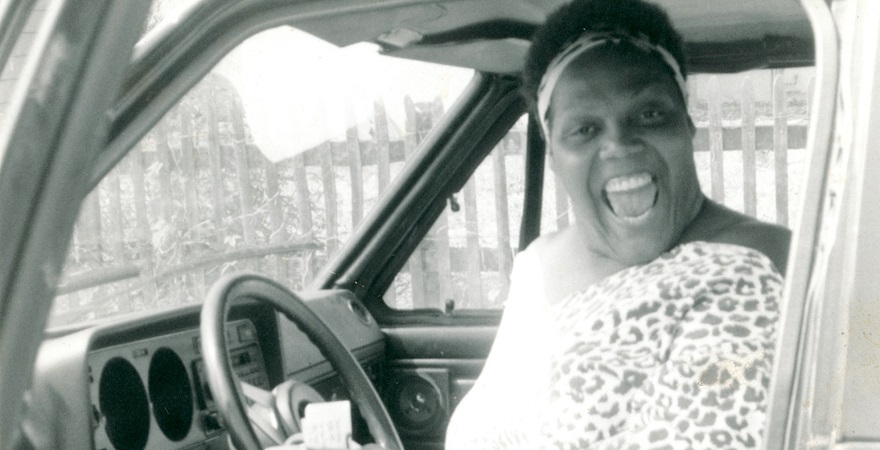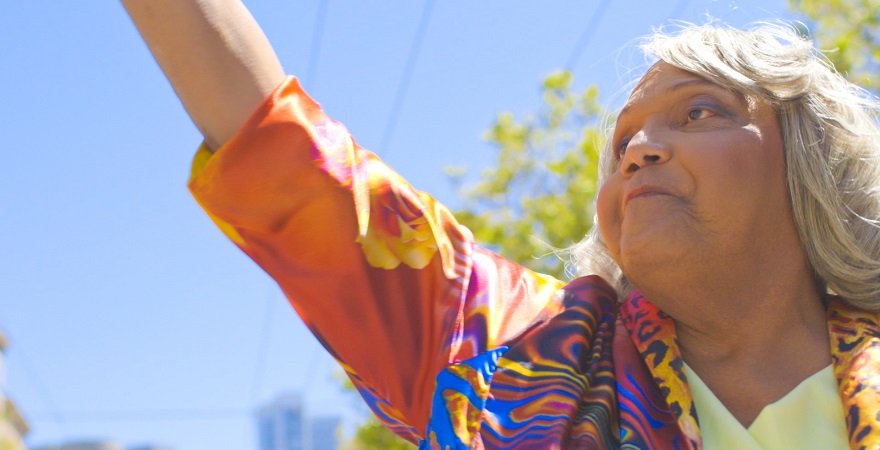Living For Miss Major.
By Adrik Kemp
As a member of the TLGBIQ community, I am more than familiar with the incredible Laverne Cox and her role on OITNB. I also know the names Chaz Bono, Lana and Lilly Wachowski, Aydian Dowling and Carmen Carrera among many significant others. I follow their work and lives like a rabid fan at times. To my detriment, one person I did not know about was Miss Major Griffin-Gracy, but thanks to this documentary, I have been enlightened.
From the moment she comes on screen, Miss Major is clearly a formidable guiding light, commanding respect, friendship and authority with every word, every glance and every wicked laugh. Her sweet, bittersweet and sometimes quite dark recollections of her life are galvanised by interviews with her ‘daughters’ and ‘granddaughters’ – other transgender women who have come to be, over the years, her enormous, extended and inspired family.
Miss Major exists in a United States in turmoil. As in Australia, there are gross imbalances in the judicial system, rampant discrimination against TLGBIQ people and a lack of acceptance or even understanding, significantly of transgender women of colour. As a proud, outspoken, intelligent and captivating member of this group, Miss Major is at the forefront of social justice movements to create and increase awareness and promote acceptance across all letters of the alphabet. She has preceded these reactionary campaigns, she spearheads them and I hope she succeeds them all.
For those that have had their lives changed by Miss Major, respect is easy to give. She is a veteran of the Stonewall Rebellion in 1969 in New York City. She has spent her entire life being a part of and a larger-than-life advocate of the TLGBIQ community generally, but the genderqueer community in particular. She has singlehandedly turned around the lives of countless transgender people, men and women of colour, by being their saviour after incarceration, destitution, abandonment and more have been rained down on them. For this and more, she is showered with well-deserved love and positivity.
There are a number of quiet moments in this documentary in which Miss Major sincerely tells people that she is so proud of them simply for being who they are. Some are transgender women who have been incarcerated, served their time and been freed to go on to become fellow advocates of social change, and others are celebrities like Janet Mock, whose very presence in the pop cultural landscape is remarkable in and of itself. Miss Major says these things with such genuine love and honesty that I couldn’t help but be swept under her spell. It is so evident simply from spending time with her in the film, why so many people consider her their mother.
Major! is, at its heart, a crowdfunded undertaking of love. Alongside touching reunions, rose-coloured reminiscences and depictions of friendship and family, we are given confronting statistics and provided tales of horror from within the transgender community. Some of these are portrayed through rudimentary text slides and animation, and while this can jar with the overall feel at times, some of the scenes being recounted are so brutal and cruel that it is the only way to truly get across the feeling of trauma that the memories create.
We also see archival photos, footage from Attica State Prison, at which Miss Major was an inmate and in which she became politicised. But the story is in the telling, and Miss Major steals every scene. When she talks about the ‘societal killing spree’ against transgender people, I sat up and paid close attention. When she explains that all she needs to know about a person is that they are transgender to be able to help them, I was more than inspired. I felt a shift in my core, a greater acceptance of my community and a more resolute responsibility to be an active part of it.
I was reminded of the 2015 film Tangerine at times during Major!. They are stylistically worlds apart and Tangerine is a film and this is a documentary, but still, parallels are inevitable when one of the overarching themes is transgender women of colour. In Tangerine (spoiler alert – for those who have not yet seen it, stop and do that right now then come back, thank me for the recommendation and keep reading) the conflict and arguments between the two ‘sisters’ is countered by moments of touching grace, culminating in a shared wig and moment in a laundromat after a particularly trying 24 hours. A shared life experience trumps all. Major! marches to a similar beat over the much longer period of Miss Major’s entire life, but is also a quietly informative, heartwarming introduction to its cast of fabulous characters.
Miss Major is the antithesis of many common tropes about TLGBIQ elders. She has had a rollercoaster of a life, and she has lost and found countless people along the way, but she is still here and still fighting. And this is what resonates throughout this entire film. We all have our lives to give, whether we are T or Q or some other letter not yet on our hefty acronym, and Miss Major is showing us how to live them.
Major! inspired, informed and most importantly, moved me. Miss Major and her incredible story are showing at Queer Screen Film Fest 2016.
Oh and if you’re wondering about the acronym, watch the documentary and let Miss Major explain.



